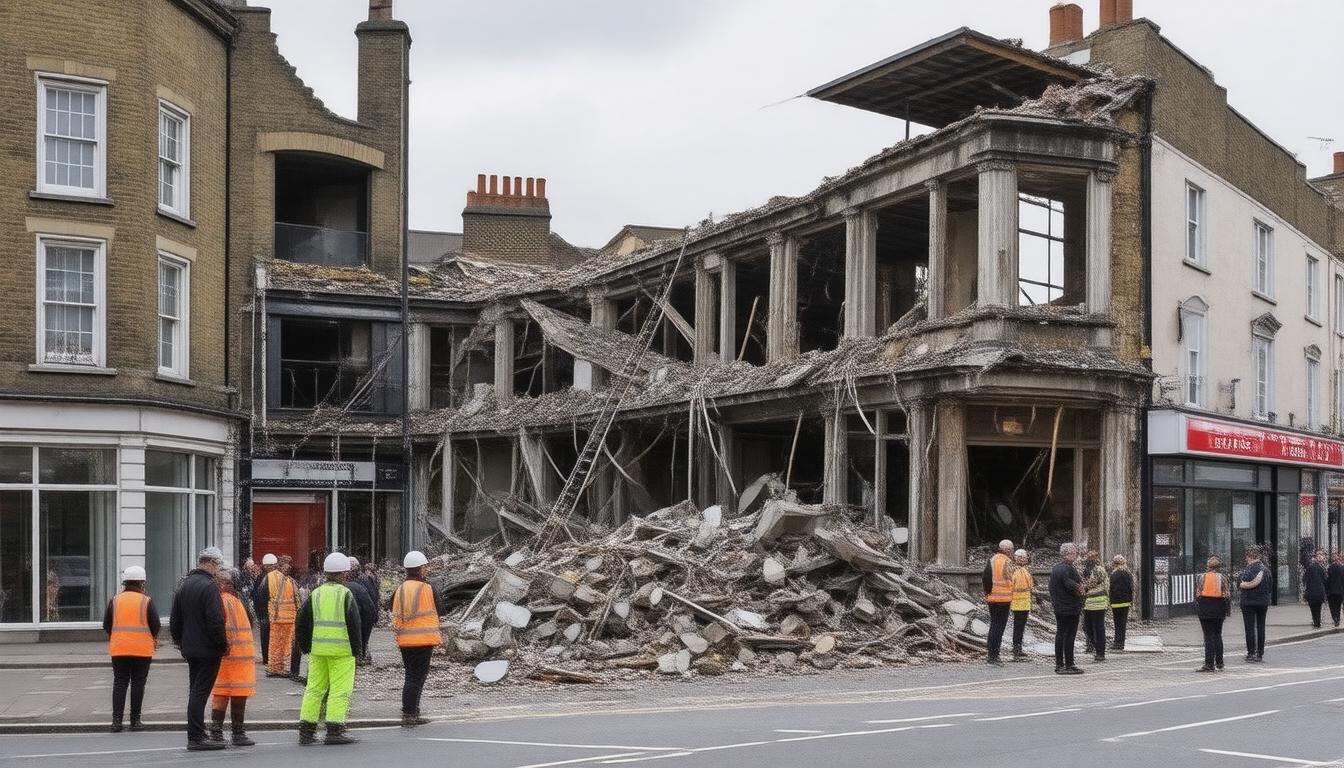In a significant incident reflecting the ongoing challenges in urban redevelopment, two residential properties under transformation for co-living units in West London experienced a catastrophic collapse on September 11,
2024. Situated on Lower Mortlake Road, the buildings were part of a project aimed at converting the existing structures into 14 co-living spaces designed predominantly for working professionals. Fortunately, the incident occurred during non-occupancy hours, resulting in no injuries. Emergency services, including the London Fire Brigade, were quick to respond to the scene, while an investigation into the underlying causes of the structural failure is currently underway. This event raises critical questions regarding safety and compliance within the burgeoning co-living market in London, particularly amidst growing demand for affordable urban housing solutions.
Key Takeaways
- No injuries were reported in the west London house collapse despite the significant structural failure.
- The incident raises important questions about the safety and viability of co-living redevelopment projects.
- Emergency services have initiated an investigation to determine the cause of the collapse and its implications for future developments.
Overview of the Collapse Incident
On September 11, 2024, a significant collapse incident occurred in west London, specifically on Lower Mortlake Road, where two houses under redevelopment fell around 15:00 BST. The properties were in the process of being converted into 14 co-living units designed for working professionals, similar to student accommodations. Fortunately, emergency services reported no injuries resulting from the collapse, underscoring the timely response from the London Fire Brigade, which is currently investigating the causes of this structural failure. The redevelopment plan had earlier received planning approval from Richmond Council in 2023, highlighting the demand for innovative housing solutions in the area amid rising living costs. The incident is a stark reminder of the potential risks involved in construction and redevelopment projects, prompting calls for stricter oversight and safety regulations in the building industry.
Implications for Co-Living Development in West London
The implications of this incident for co-living development in West London are significant. With the increasing demand for affordable housing solutions, co-living spaces have gained popularity, especially among young professionals. However, the recent collapse raises pressing concerns about the safety standards and construction practices currently in place. Experts suggest that this incident could lead to a comprehensive review of building regulations and enforcement practices across London, particularly for co-living projects, which often operate in a faster-paced construction environment. Stakeholders, including developers and local councils, may need to re-evaluate their approaches to ensure such tragedies do not recur, thus fostering a safer and more sustainable accommodation model that meets the needs of a growing urban population (Smith, 2024). Furthermore, this could impact future investments in co-living projects, as investors might demand stricter safety assurances before committing funds, potentially slowing down the rapid expansion of this housing trend.





